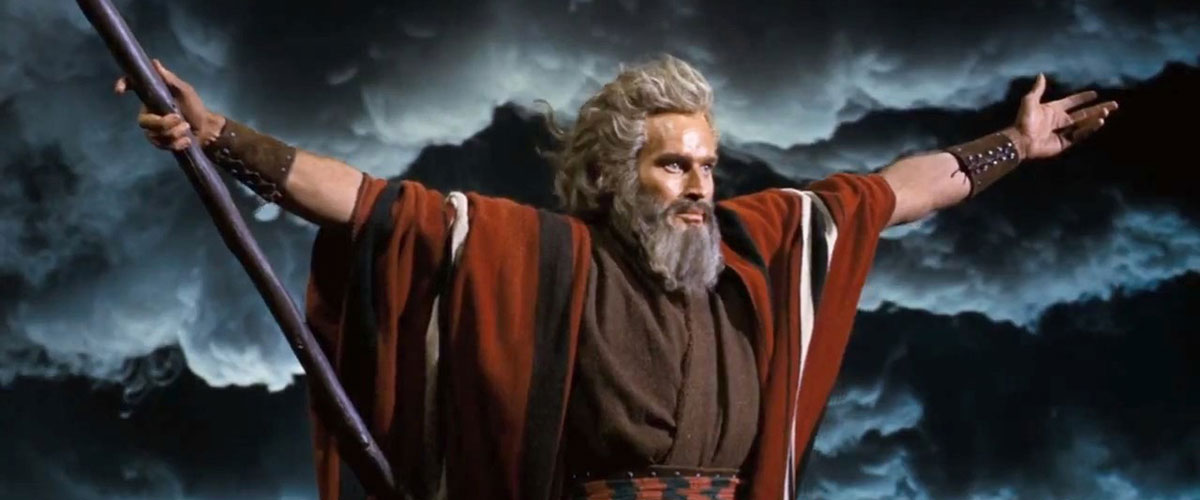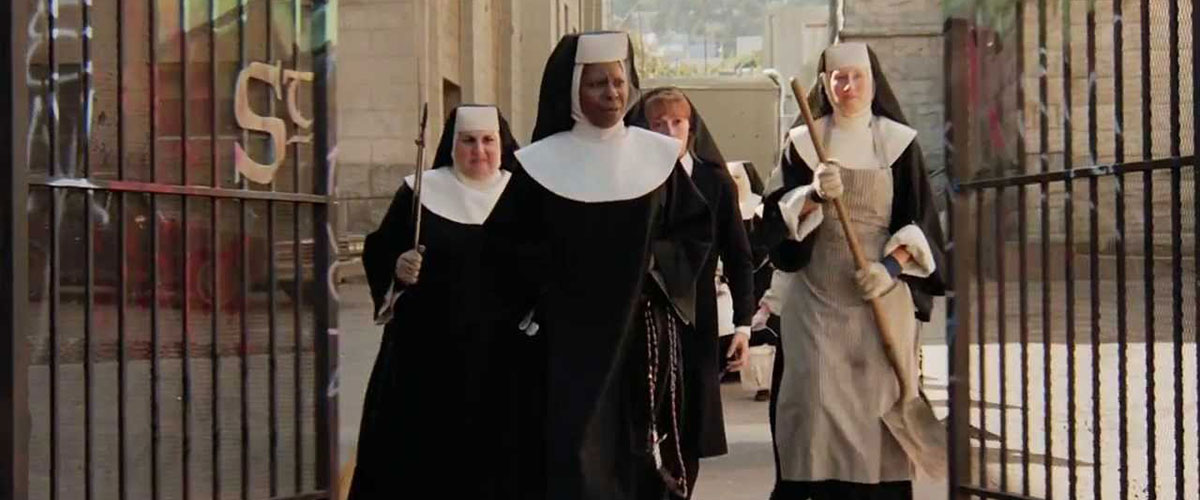If Faith Were a Movie
by Martin Thielen
May 2, 2021
Nine days ago, along with millions of others around the globe, I watched the Academy Awards. I’ve not missed one in over forty years. Since three of my major interests are theology, writing, and movies, I decided to do a mash-up of all three for this month’s post.
Today’s religious environment offers Americans a wide variety of faith options. In the spirit of the recent Academy Awards season, this column will focus on five of them, each one illustrated by a movie. Here are the nominations for the five most popular religious expressions found in America in 2021, greatly oversimplified.
Traditional Faith: The Ten Commandments

Cecil B. DeMille’s 1956 epic film, The Ten Commandments, depicts God as an all-knowing and all-powerful interventionist Deity. In this classic film God commands Moses to return to Egypt and convince the pharaoh to liberate the Hebrew people from their bondage in slavery. As the story unfolds, God sets the Israelites free through mighty miracles, including ten plagues on the Egyptians and a dramatic parting of the Red Sea. Moses then presents the Israelites with stone tablets of God’s Ten Commandments, which must be faithfully obeyed. This traditional view of a masculine and powerful God who hears prayers, works miracles, and demands obedience is still held by large numbers of believers today.
Progressive Faith: Sister Act

In the 1992 comedy film Sister Act, a lounge singer joins a convent after being placed in a witness protection program. Federal agents disguise the singer, played by Whoopi Goldberg, as Sister Mary Clarence. When she arrives at the convent, Sister Mary finds an old, declining, and change-resistant organization. She eventually convinces the choir to shift their traditional music selections to a lively mix of gospel and rock and roll. This modern innovation sparks energy, attracts new people, and revitalizes the parish. In the end, even the Pope is impressed by the modernizations. Like Sister Mary, many progressive Christians feel the need to modernize their faith, including a full embrace of modern scholarship, rejection of biblical literalism, gender equality, interfaith dialogue, social justice, new forms of liturgy, advocacy for the LGBTQ community, and pliable open-minded theology.
Troubled Faith: First Reformed

Released in 2017, First Reformed tells the story of Reverend Toller, pastor of a tiny Dutch Reformed congregation in New York. Under Toller’s anemic pastoral leadership, the historic church, once a stop on the Underground Railroad, becomes more of a tourist attraction than a viable congregation. Before arriving at First Reformed, Pastor Toller was a happily married man and successful military chaplain. However, against the wishes of his wife, Toller encouraged his son to serve in Iraq, and he was killed in combat. Devastated by his son’s death, Toller’s marriage collapsed, he began to drink, and he suffered a massive crisis of faith. Like Reverend Toller, large numbers of people today struggle with anguished faith. Many of them have deconstructed their old faith but have been unable to reconstruct a new one to take its place. As a result, they feel stuck in chronic and unresolved religious angst.
Nontraditional Faith: Star Wars

Birthed in 1977, the Star Wars film franchise has spawned more than a dozen films and other spin-offs. The Star Wars saga is far too complicated to summarize here. But a constant in the Star Wars universe is the presence of “the Force,” as in “May the Force be with you.” The Force is not a traditional deity or an organized religion. It might best be described as “spiritual but not religious.” The Star Wars phenomena can illustrate the growing number of people who embrace nontraditional expressions of faith. For them God is not a personal heavenly Father in the sky but a life-force/energy-force/love-force spirit that permeates the universe. People who hold this view have abandoned belief in a theistic God and a divine Christ. However, they still affirm faith in an intentionally ambiguous spirituality that seeks love and justice in the world, and they desire to engage in that noble effort.
No Faith: The Wizard of Oz

Although most people associate the 1939 classic film The Wizard of Oz with Dorothy’s great adventure in the mysterious land of Oz, it also serves as a statement against religion. Near the end of the movie, we learn that “the wonderful wizard of Oz” is a mere mortal hiding behind a curtain, pretending to be bigger than life. Although he’s a good man, he’s not much of a wizard. So rather than depending on “the Great and Powerful” wizard of Oz to solve their problems, Dorothy and her friends must learn to live by their own wits alone: including their brains, their hearts, and their courage. Agnostics and atheists who have lost faith (or never had it in the first place) readily resonate with The Wizard of Oz. They choose to live their lives without God or religion. Instead, they affirm faith in themselves, others, and noble human values including love, tolerance, honesty, authenticity, freedom, education, reason, inclusion, and justice.
Other faith options could be noted, but these five:
- traditional faith,
- progressive faith,
- troubled faith,
- nontraditional faith,
- and no faith
are more than enough for the purposes of this column.
And the Winner Is . . .
At this point you might expect me to play the role of movie critic and rate all five selections on a scale from one star to five. Or perhaps you are waiting for me to tear open an envelope and say, “And the Oscar goes to. . . .” But I’m going to refrain from that.
The truth is, good people can be found in all five of these camps. And each option has its own set of strengths and weaknesses. Some people live their entire lives in just one or two of these faith stations. Others have journeyed through several of them. More than a few have walked through all five, often in the order listed above. There are no winners or losers on this list. But they do represent some of the most prevalent faith options in America today. And while each of us likely has a personal preference, we would do well to seek understanding and respect for all five groups.
A Personal Note
I launched Doubter’s Parish five months ago. Early response has been positive. A growing number of people visit the site to read the monthly posts and other materials. I’ve especially enjoyed corresponding with readers. If you ever want to communicate with me, feel free to send an email and I’ll respond as soon as possible. If you would like to receive my monthly newsletter (a brief email notification alerting you to new posts and other materials) please do so today. Thank you for your interest in Doubter’s Parish. Writing for you is a joy.
Martin Thielen
May, 2021
